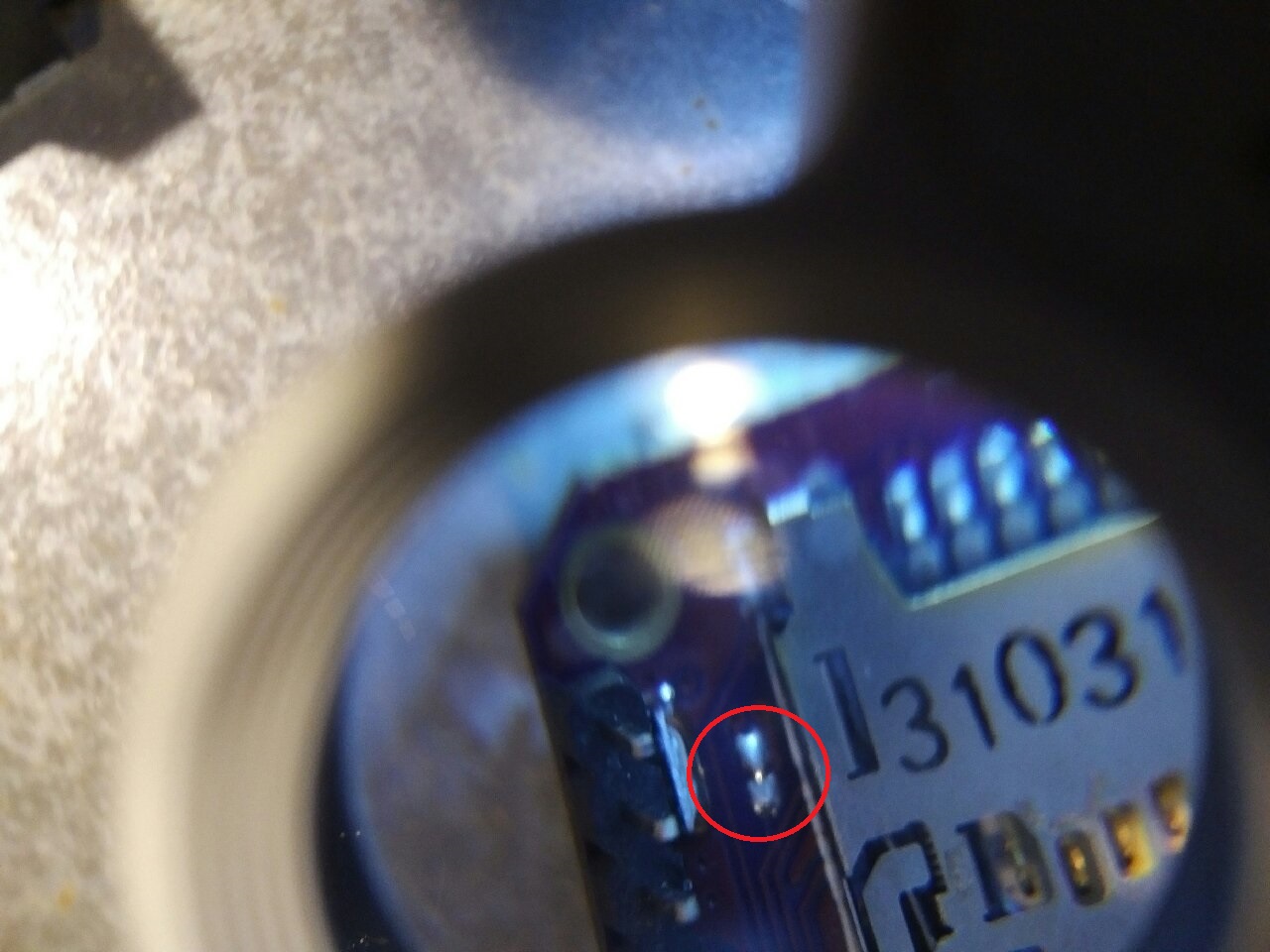Omega 2+ DOA
-
@fossette said in Omega 2+ DOA:
@Leo-de-Blaauw Use the first Serial Port to help debug.
https://community.onion.io/topic/1329/tip-switch-the-omega-to-verboseThank you, will definitely give that a go when i get back home from work, but no lights at all did look somewhat alarming.. Nothing on the Omega2+ nor on the shields...
regards,
Leo
-
Just a small update...
Tried another power supply 2000 mA so should be fine and is working great on for instance my Red Pitaya... No lights coming up..
Connected it again to my pc through USB cable, serial (COM) port recognized fine, terminal window stays empty No Lights coming up at all on either the dockboard or the Omega2+ itselves..
Inspected all soldering through magnifying glass, no apparent bridges in the soldering..
Logged a ticket with Onion since my conclusion is by now it is indeed DOA.. shame and big bummer...
regards,
Leoh
-

Not totally sure if the solderpads in the red circle should be bridging eachother or not maybe someone can confirm ?
Thanks
Leo
-
@Leo-de-Blaauw They are not bridged on my Omega2+, which works quite fine.
-
@WereCatf said in Omega 2+ DOA:
@Leo-de-Blaauw They are not bridged on my Omega2+, which works quite fine.
Thanks well not sure if i want to touch soldering this small but might give it a try then.
-
@Leo-de-Blaauw Use an exacto-knife or similar to cut the bridge, instead.
-
Geez! Those are so small and close that I'm not even sure if they are connected or not on my board... and my probes are too big for them. On your board, it's obvious that you have 2 blobs of solder.
-
@fossette said in Omega 2+ DOA:
Geez! Those are so small and close that I'm not even sure if they are connected or not on my board... and my probes are too big for them. On your board, it's obvious that you have 2 blobs of solder.
ehhehee yeah they are small, but believe if i put my multimeter on both ends there is a short
 .... And still not sure if i dare touch em !
.... And still not sure if i dare touch em !
-
@WereCatf said in Omega 2+ DOA:
@Leo-de-Blaauw Use an exacto-knife or similar to cut the bridge, instead.
Low and behold we have light that was it, I cut it with an exacto and now the yellow light is on ! I know these things are cheap but so much for quality controll I guess...
-
Thank you to everyone on this thread. This was the same problem I had on mine. I scratched off some solder between the blobs and now I have the amber light. Two weeks of nothing from helpdesk. It seems this was not a product that you wanted the first batch of.
-
Sorry to hear that this happened. We'll be following up with the manufacturer soon to figure out why these units are passing through our testing procedure (which very clearly states the unit must boot!).
Gabe
-
@Gabriel-Ongpauco Yes I also filled out an RMA service request but haven't heard anything on it just yet...
-
@Gabriel-Ongpauco I haven't seen the Omega2(+) schematics, but these entities may be both what is called a via that transfers the signal from one PCB layer to another. When these vias are too close together, the manufacturing process will just fill everything with solder, creating solder bridges where none are supposed to be. It is better for the electronic engineer to have a specific minimum space between vias. When it's not possible because of routing issues, a specific instruction to protect the vias before the solder bath process must be issued.
But of course, if a specific contract clause with the manufacturer impose a full diagnostic test for each unit, the manufacturer has clearly been sloppy.
-
I have an Omega 2 and an Omega 2+. The Omega 2 seems to be fine, but the Omega 2+ had a problem wherein it would work initially, but on reboot would shutdown and not restart with no activity on the serial lines. Removing and restoring power did not work, but if it sat for a while, then it would boot and apparently operate normally until the next reboot. The behavior was repeatable over sessions on a few different day.
On the hunch that there was an intermittent solder connection somewhere on the board that caused a failure only during the boot process, I used a SMD heat gun to reflow the discrete parts on the Omega 2+ bottom side and it seems to have resolved the issue for now.
I recognize that this is the sort of fault that can slip through product test, but it is indicative of a process problem in the board build, so I thought it worth pointing out.